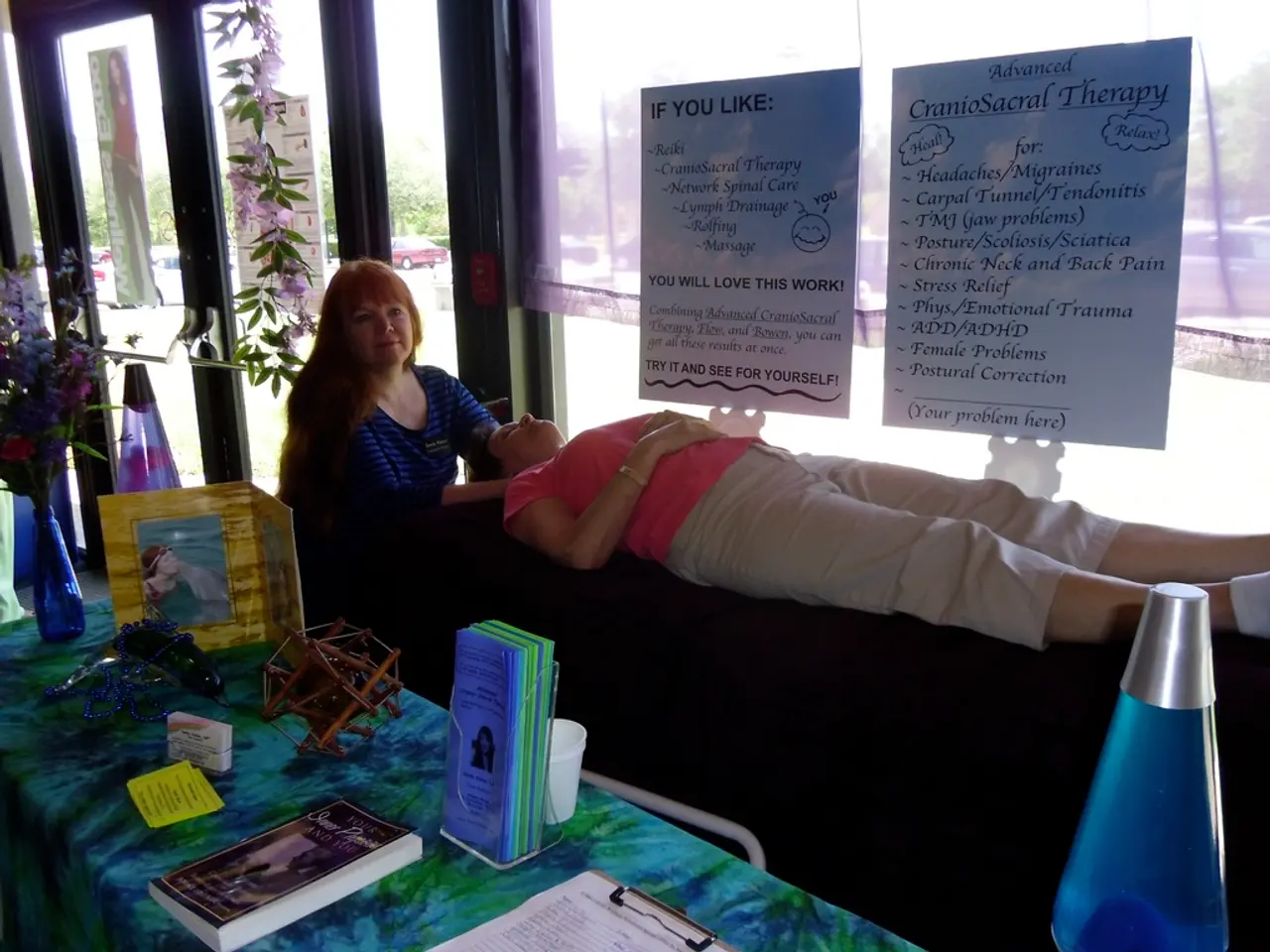Hypnosis as a Tool for Reducing Anxiety: Advantages, Scientific Studies, and Frequently Asked Questions
Hypnotherapy, the use of hypnosis as a treatment, has been gaining recognition in the professional field for its effectiveness in reducing anxiety symptoms. This alternative therapy, which involves a state of consciousness characterized by focused attention and reduced peripheral awareness, has been shown to be beneficial for a wide range of conditions.
But what exactly is hypnotherapy, and how can it help with anxiety?
Hypnotherapy typically consists of two phases: hypnotic induction and application. During the induction phase, the practitioner guides the individual into a state of deep relaxation. In the application phase, the practitioner makes suggestions to target specific symptoms and challenges, such as anxiety.
While the effectiveness of hypnotherapy for anxiety is mixed, with some studies showing no benefits and others showing many, a 2019 analysis of research found that people who received hypnosis reduced their anxiety levels by more than 79% on average compared to participants who didn't receive hypnosis.
Hypnotherapy may help with a variety of conditions, including anxiety, phobias, stress, trauma, depression, sexual dysfunctions, sleep disorders, alcohol use, smoking cessation, speech disorders, chronic pain, memory or concentration improvement, strengthening self-esteem, medical or dental procedures, and even certain medical conditions like cancer, surgery, and irritable bowel syndrome.
However, it's important to note that hypnotherapy may cause mild side effects such as headache, dizziness, nausea, sleepiness, anxiety, and panic. If the practitioner is helping to relive an event from another time in your life, anxiety or unwanted emotions may occur when coming out of hypnosis.
To find a reputable hypnosis practitioner, look for a practitioner with graduate training, a valid license in a healthcare field such as psychiatry, social work, or medicine, and proper training or experience in hypnosis. Finding a reputable practitioner may be difficult depending on location.
In some cases, hypnotherapy may be more effective when combined with other treatments such as Cognitive Behavioural Therapy (CBT) or acupuncture. For example, a study in 2018 suggested that it would be most effective for treating people with generalized anxiety disorder (GAD) to combine CBT, mindfulness, and hypnosis.
While self-hypnosis can be used as another tool to manage anxiety at home, it's recommended to reach out to a licensed professional when looking to treat anxiety with hypnotherapy. A review of research in 2014 found that hypnotherapy is more cost-effective and has a shorter time commitment compared with other treatment options. Moreover, according to the same review, getting trained in self-hypnosis is a quick, cost-effective, and safe alternative to medications for treating certain types of anxiety.
In conclusion, hypnotherapy, when practiced by a reputable practitioner, can be an effective tool in managing anxiety and other related conditions. However, it's important to remember that everyone responds differently to hypnotherapy, and the effectiveness may vary from person to person. Always consult with a licensed professional before starting any new treatment.
Read also:
- Peptide YY (PYY): Exploring its Role in Appetite Suppression, Intestinal Health, and Cognitive Links
- Toddler Health: Rotavirus Signs, Origins, and Potential Complications
- Digestive issues and heart discomfort: Root causes and associated health conditions
- House Infernos: Deadly Hazards Surpassing the Flames








